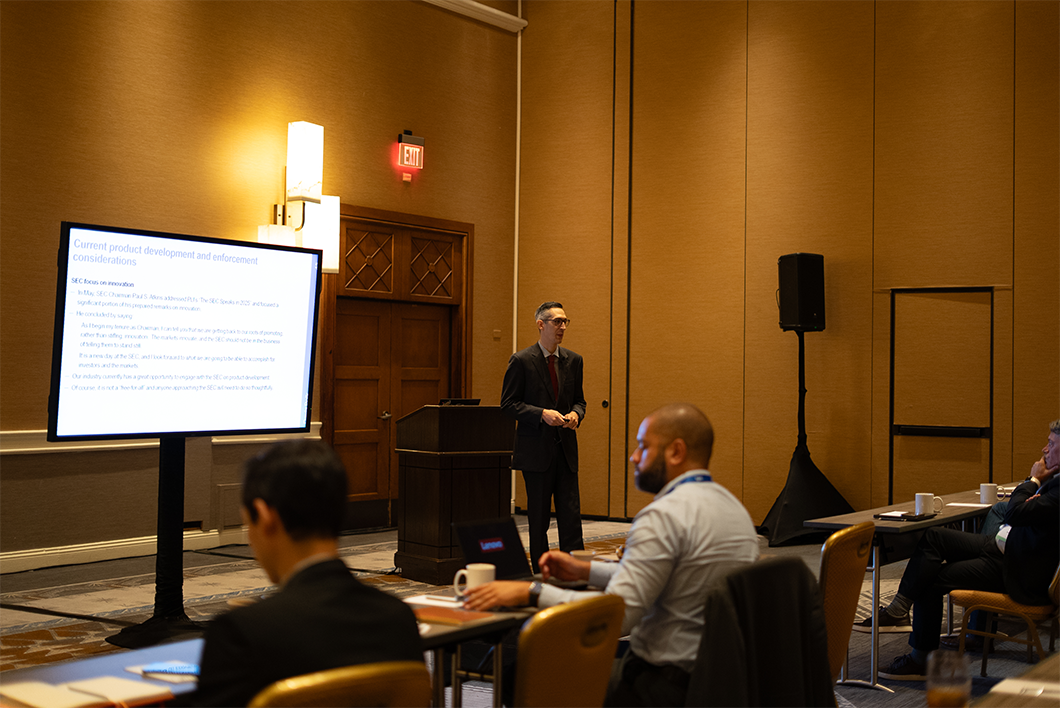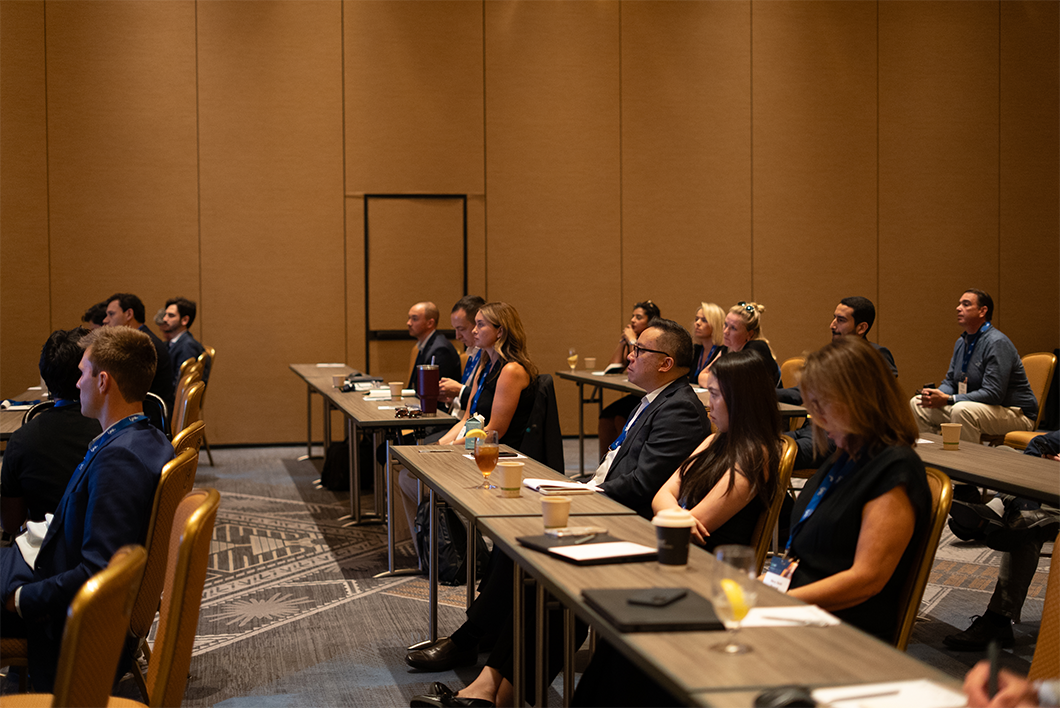US regulators are pinpointing the increasing degree of complexity in product spaces adjacent to structured products.
Vidal Vanhoof (pictured), counsel, derivatives & structured products at Davis Polk in New York provided an overview on the state of the regulatory landscape, product development and enforcement considerations, as well as conduct standards during the first day of the SRP Americas 2025 Conference in Scottsdale, Arizona on 15 September.
ETFs are starting to take features that have been traditionally very popular in the structured product space - Vidal Vanhoof
The discussion at the Fairmont Scottsdale Princess covered regulatory changes and enforcement priorities.
According to Vanhoof, even though the amount of express discussion on structured products in the annual priorities’ reports put out by regulators over the last couple of years, they have not totally taken their eyes of this space.
“Where they are focused is the intersection between conduct standards and structured products,” said Vanhoof, adding that regulators are also pinpointing the increasing degree of complexity in product spaces that are adjacent to structured products.
“ETFs are starting to take features that have been traditionally very popular in the structured product space,” said Vanhoof. “On some level that can be good, but it also increases the possibility that malfeasance or bad practices in parts of industry outside of structured products could bring more regulatory, media or investor scrutiny on structured products.”
Vidal Vanhoof during his presentation at SRP Americas 2025 in Scottsdale, Arizona 2025 on 15 September.
Right now, the Securities and Exchange Commission (SEC) is seen as more receptive to new product ideas, with chairman Atkins advocating for a supportive regulatory environment, according to Vanhoof.
“[Atkins] seems to be focused on telling the market very clearly that the SEC should not be stifling innovation […] they have a role in making sure that the markets have the ability to innovate, and they shouldn't be telling the market to stand still,” he said.
In terms of product development this may be one of the best times in the last 15 to 20 years, about having conversations with the SEC since they are opening the door for innovation.
“We think that if people approach them with ideas, they're probably going to get the most receptive audience they've gotten for a really long time,” said Vanhoof.
“Of course, none of that is to say that this is a complete free for all.”
Rulemaking
Rulemaking is expected to be more inclusive, with longer comment periods and economic analysis since the current leadership has been critical with how they saw the rulemaking process working during the previous administration.
“The notice of comment period was maybe skipped over, not necessarily treated terribly seriously.
“The signals that we're starting to get now are that they want to go back to the spirit of how those processes are meant to work,” said Vanhoof, citing greater use of requests for information, soliciting feedback before starting a formal rulemaking process, as examples.
“They do want to continue to use economic analysis and think about market impacts and market costs when they're proposing rules, they're also very focused on compliance.”
Enforcement will focus on fraud affecting retail investors, with increased scrutiny on cyber-related misconduct.
Members of the audience during Vidal Vanhoof's presentation at SRP Americas 2025 in Scottsdale, Arizona 2025 on 15 September.
Vanhoof emphasised its very likely misconduct that happens during the Trump presidency, could be the subject of enforcement actions at some point in the future.
“Who knows who the next president may be? Maybe someone whose view of enforcement is very different to that of the current administration,” he said.
Finra
Earlier this year, the Financial Industry Regulatory Authority (Finra), which regulates member brokerage firms and exchange markets, issued a regulatory notice soliciting broad market feedback on all their rules.
“It was the kind of notice we haven’t seen before [because usually] they focus on a particular issue or existing rule,” said Vanhoof.
In this case, Finra focused on two main areas: capital formation and modern workplace – and the market did take up the opportunity, as the notice received 46 comments, highlighting issues like arbitration and communication rules.
“A lot of those submissions had some degree of focus on issues affecting the securities markets, particularly those that are relevant to structured products,” said Vanhoof, adding that this has continued to be an area of immense scrutiny of Finra.
“If you talk to people at Finra, they think that they can't win, because their view is that their member firms think that the arbitration process is very much slanted in favour of investors.
“Conversely, they get feedback from investors who think that the whole thing is sort of stacked in favour of all the member firms,” said Vanhoof.
DOL fiduciary rule
Vanhoof concluded with an updated on the Department of Labor fiduciary rule and related state law developments.
The DOL has proposed rules similar to those from the Obama administration, which have been struck down by the courts. The current status quo is a return to the pre-Obama rules, with no significant changes.
“Up until the Obama administration, we were offering an adverse set of rules that dated back to the 70s,” he said.
In the case of structured products, it was difficult for someone to be seen as a fiduciary along those pension plans, because the standard to fall within the fiduciary market was “somewhat difficult to satisfy”.
“There had to be some sort of ongoing course of dealing between the pension plan and the person making the sale, and generally, there also had to be real mutual understanding, in the form of the contract, where there was an agreement between the parties that there was actually a fiduciary relationship,” he said.
Do you have a confidential story, tip or comment you’d like to share? Contact Us | SRP (structuredretailproducts.com)


